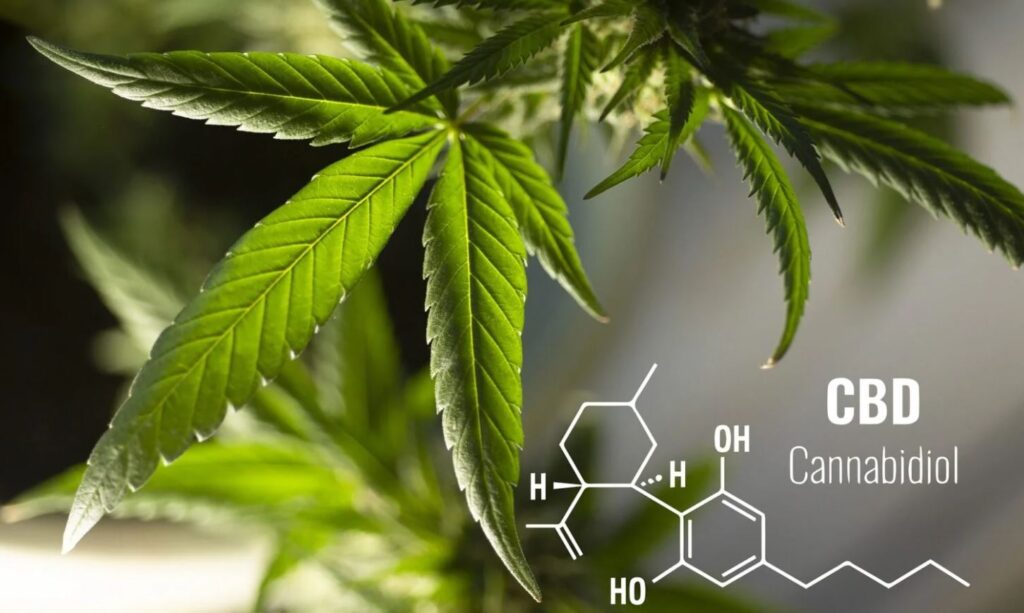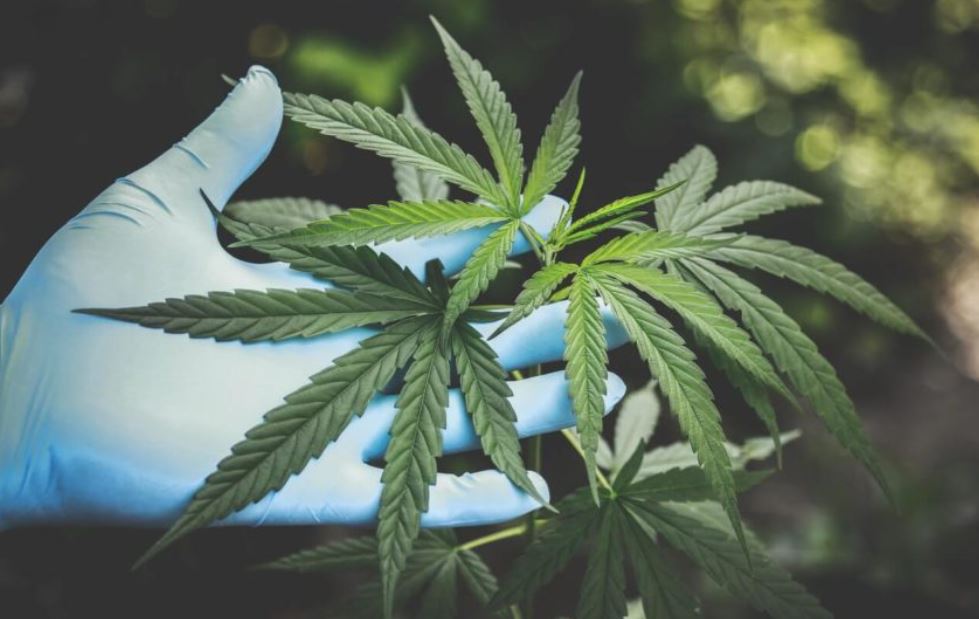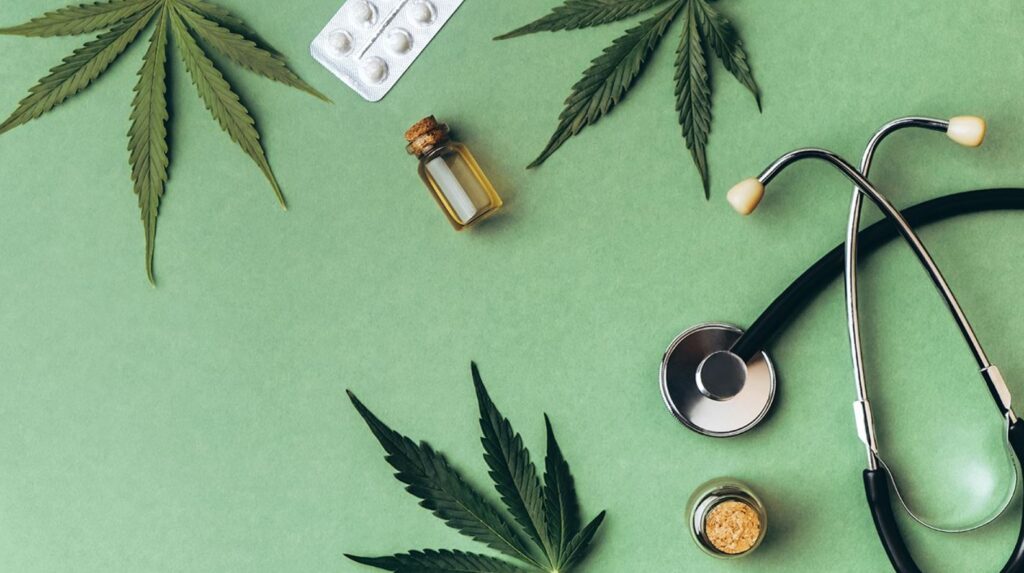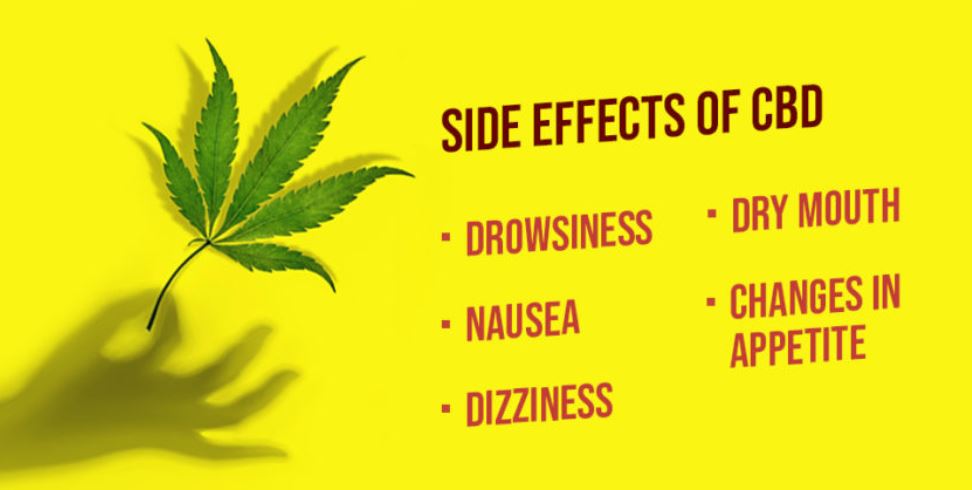Cannabidiol, or CBD, has become a major player in the wellness sector in recent years. Due to its possible health benefits, this non-psychoactive cannabis plant component has attracted a lot of research.
A quick look online or a stroll down the aisles of any health food store will let you know about a huge number of products that contain CBD. CBD is now in a lot of different products, like sweets, creams, oils, and tinctures.

But what is CBD, and why is it getting so much attention? It all started with a desire to learn more about how this natural material can improve health and well-being.
CBD interacts with the endocannabinoid system in our bodies, which means it might change how we feel everything from worry to pain. It can help with a lot of different things, like relieving chronic pain, lowering inflammation, easing anxiety signs, and even making sleep better.
Even though CBD is becoming more famous, it’s not always easy to figure out what it is and how it affects our bodies. Out there is a lot of information, some of it true and some not so much. That’s why I’m here: to help make things clear.
Because I’ve worked in the health field for a long time and use CBD products myself, I’ve learned a lot about the science behind this interesting compound. I’ll talk about what I’ve learned about CBD’s possible health benefits and how it might make you feel better in this blog post.
What Is CBD?
CBD is a substance in cannabis that doesn’t get you high. It helps your health by activating the endocannabinoid system, which relieves chronic pain, lowers stress, controls inflammation, eases anxiety, and improves sleep. Get help with your health.
How Does CBD Work in the Body?
Let’s take a moment to learn how CBD works with our bodies before we talk about its benefits. An important part of this relationship is a network in our bodies called the endocannabinoid system (ECS).
The ECS controls many of the processes of our bodies, like a complex orchestra. It is very important for keeping our body in homeostasis, or balance. It controls things like how we feel pain, our mood, our appetite, and even our sleep habits.
You may be thinking what CBD has to do with any of this. The ECS is affected by CBD because it interacts with the cannabis receptors, which are its main players. There are two kinds of these receptors: CB1 receptors and CB2 receptors. They are found all over our bodies.
CB1 receptors are mostly found in the brain and the rest of the nervous system. On the other hand, CB2 receptors are more common in organs on the outside of the body and immune system cells. Cannabinoids like THC link directly to these receptors when we eat or smoke pot. CBD does not. Instead, CBD affects these receptors in a roundabout way and also raises the amount of cannabis our bodies make on their own.
Also Read | Benefits Of Hemp Seeds: Nutritional, Health & How To Consume?
What does this mean to you? Well, because it interacts with your ECS, CBD may be able to affect many areas of your health, from relieving pain to managing stress. That’s pretty cool, right?
But keep in mind that every person is different and may react to CBD in different ways. How CBD interacts with your ECS can be changed by things like your genes, your general health, and even the way you live your life.
Knowing your body and how it reacts to CBD is just as important as knowing the compound itself if you want to get the most out of it. Whenever you’re thinking about adding CBD to your health routine, you should always talk to a doctor or nurse first. This way, you’ll get advice from a professional that is tailored to your health wants and goals.
Can CBD Help With Chronic Pain and Inflammation?

CBD works on our bodies by interacting with the endocannabinoid system, as we just saw. Now, let’s look at how this relationship might help people who are dealing with inflammation or constant pain.
If you have chronic pain, like from arthritis, headaches, or something else, you know how hard it can be to do things. What’s good? CBD may help people with chronic pain by working with CB1 and CB2 receptors in the ECS and lowering the body’s response to inflammation, according to research.
For instance, a study in the European Journal of Pain found that putting CBD on the skin could help reduce joint pain and swelling. This pain relief happened without any obvious side effects, which makes CBD a promising choice for people who want to deal with their pain without becoming addicted to drugs.
In the same way, a review article in Frontiers in Pharmacology stated that CBD might help with migraine pain. But more study is needed to fully understand how CBD helps with pain in these situations.
CBD may help people with inflammatory conditions like IBS (Irritable Bowel Syndrome) and gastritis in addition to helping them deal with pain. Studies show that the anti-inflammatory properties of CBD might help ease the symptoms of these diseases.
What does this matter? Inflammation is your body’s normal reaction to being sick or hurt. Inflammation is necessary for mending, but too much of it can cause a wide range of health problems, from digestive problems to heart disease. CBD might help you deal with these problems and live a better life in general by lowering inflammation.
Of course, these results are good news, but they shouldn’t be used instead of medical advice from a doctor. When thinking about using CBD to treat severe pain or inflammation, you should talk to your doctor first. Taking your health and desires into account, they can help you decide if this path is right for you.
Another thing to keep in mind is that CBD might help with the signs of these conditions, but it’s not a cure. For long-term treatment of chronic conditions, you should always see your doctor regularly, eat well, exercise regularly, and get enough rest.
When it comes down to it, CBD is just one way to deal with constant pain and inflammation. When making choices about your health, don’t forget to look at the big picture and think about all of your health’s aspects.
What Are the Mental Health Benefits of Using CBD?
Now that we’ve talked about physical health, let’s talk about the possible benefits of using CBD for mental health problems like PTSD and anxiety. Improving our mental health is an important part of being healthy overall, and it’s good to see that a new study suggests CBD might help with this.
As someone who has felt the racing thoughts and heart-pounding sensations that come with worry, you know how annoying they can be. The good news is that study shows CBD might help ease these symptoms. A study in The Permanente Journal found that CBD could help people with anxiety and sleeplessness sleep better and feel less anxious.
In the same way, early research suggests that CBD might also help people who have PTSD. By possibly changing how our bodies react to stress, CBD could help people with this condition deal with their unwanted thoughts and recurrent nightmares.
You may now be thinking about how CBD can have these possible benefits. It looks like it has a lot to do with serotonin, a hormone that controls mood. According to research, CBD might raise the amount of serotonin in the brain, which could help people with mental illnesses like sadness and anxiety.
Studies also show that CBD may have an effect on the body’s stress response, which is what happens when we are faced with a danger or challenge. By possibly stopping the production of cortisol, the “stress hormone,” CBD could help make the body feel calmer.
It’s important to remember that these results are helpful, but they’re not proof. We need to do more studies to fully understand how CBD affects our mental health. It’s important to talk to a doctor before adding CBD to your mental health practice. They can help you through this process and make sure it works with any other therapies or treatments you’re already getting.
Keep in mind that CBD may help, but it shouldn’t be used to treat mental health problems on its own. A lot of the time, medication, therapy, living changes, and self-care are all part of comprehensive mental health care. When making choices about your mental health, you should always look at the big picture.
How Does CBD Contribute to Weight Management and Skin Health?
Now that we’re talking about physical health, I want to talk about two more possible benefits of CBD: it may help you lose weight and keep your skin healthy. You might not think of these places first when you think of CBD, but scientists are starting to look into some interesting options.
In addition to helping people lose weight, there is growing proof that CBD may also help change white fat into brown fat. If you don’t know what these words mean, here’s a quick list: People usually link white fat with weight gain and health problems. On the other hand, brown fat is thought to be good for you because it burns calories to make heat.

The journal Molecular and Cellular Biochemistry released a study that found CBD might make genes and proteins that help make brown fat work better. CBD might be able to help stop obesity and metabolic diseases that come with it by encouraging this conversion.
When it comes to skin health, did you know that acne is one of the most common skin problems people all over the world have? It’s not just a problem for teens; many adults also have it. What’s good? According to research, CBD might help control oil production, which is one of the main causes of acne.
A study published in The Journal of Clinical Investigation found that CBD could stop the swollen sebaceous glands that make too much oil from working. CBD might help control acne signs and improve skin clarity by stopping this activity.
I want to make it clear that these are just early results. More study is needed to fully understand how CBD can help people lose weight and keep their skin healthy. Please talk to a medical professional first if you want to use CBD for these reasons. They can give you advice that is tailored to your wants and situation.
Always keep in mind that true fitness isn’t based on a single thing; it’s about finding balance through a mix of healthy habits. Whether you’re trying to improve your weight, skin, or mental health, make sure you take a well-rounded approach that includes eating well, exercising regularly, getting enough sleep, and being aware of how you treat yourself.
Can CBD Improve Sleep Quality?
We all know that getting enough sleep is very important for our health and well-being. But many of us have trouble sleeping because our lives are so busy and we’re always in front of computers. That’s where CBD could come in handy.
More research is showing that CBD might be able to help control our sleep-wake cycles, which are the normal patterns of being sleepy and awake at different times of the day. CBD might improve not only the amount but also the quality of our sleep by changing these rhythms.
A 2019 study in The Permanente Journal found that two-thirds of 72 people who took CBD and had anxiety or trouble sleeping said their sleep got better within the first month. This improvement changed over time, though, which shows that more research is needed to fully understand how CBD affects sleep in the long run.
CBD may help you sleep because it can lower your worry, which is a common problem that makes it hard to sleep. As I already said, CBD can change the amount of serotonin in the brain. Serotonin is a key chemical for controlling mood, so it can also change the way we sleep.
But it’s not just about sleeping longer. If you get enough good sleep, you’ll feel refreshed and ready for the day when you wake up. Some people who use CBD say they feel calmer when they wake up, which could mean they slept longer and better.
If you want to try CBD to sleep better, keep in mind that your body will react differently to it. You might not be able to use something that works for someone else. It is always best to start with a low dose and slowly raise it while a doctor or nurse watches.
You should also remember that good sleep habits is more than just taking a supplement. It should include getting regular exercise, spending less time in front of screens before bed, sticking to a regular sleep routine, and making your bedroom a calm and comfortable place to sleep.
So, whether you have rare restless nights or suffer from chronic insomnia, CBD may be a natural option worth looking into—as long as it’s part of a larger plan to improve your sleep and health in general.
What Is Epidiolex and How Does It Relate to Seizure Management?
One of the most interesting success stories about CBD and its possible health benefits is how it has been used to treat some types of epilepsy. In fact, there is a drug on the market that is FDA-approved and made from weed that is used just for this. The name of it is Epidiolex.
Epidiolex is a pure type of CBD oil that has been shown to help people with two rare types of epilepsy—Dravet syndrome and Lennox-Gastaut syndrome—have fewer seizures. Traditional seizure medicines don’t work well for people with these problems, which makes the success of Epidiolex even more impressive.
When the FDA approved Epidiolex in 2018, it was a big step forward for the legal use of cannabis. This was the first time in U.S. history that a drug made from marijuana was approved by the federal government. This made it possible for more study and treatment options.
Epidiolex was approved after a number of clinical studies. Participants in these tests who took Epidiolex had a lot fewer seizures than those who took a placebo. Notably, these gains happened while other seizure medicines were also being used. This shows that Epidiolex can work well when added to other treatment plans.
Even though Epidiolex is a big step forward, it’s important to keep in mind that it’s not a magic bullet. CBD treatment may not work for everyone with seizures, and Epidiolex itself can cause side effects like sleepiness, loss of appetite, diarrhea, and even liver damage.
It is always important to talk to your doctor first if you or someone you care about has seizures and wants to try CBD as a treatment. They can give you advice based on your specific health needs and keep an eye out for any possible side effects or drug problems.
Understanding the Side Effects and Safety Concerns
CBD may be able to help with several health problems, but like all drugs, it has some negative effects. These side effects can be mild to possibly serious, so it’s important to know what they are before you think about adding CBD to your health routine.

One of the biggest worries is that it could hurt the liver. The Centers for Disease Control and Prevention (CDC) brought this up when they said that taking too much CBD could hurt the liver. If you already have a liver problem, this is especially important because it could make things worse.
Aside from liver damage, other side effects that users often report are dry mouth, diarrhea, loss of hunger, drowsiness, and tiredness. Also, it’s important to note that CBD may change the way other medicines you’re taking work, either making them more effective or less effective.
Extra care should be taken if you are pregnant or breastfeeding. It’s still not clear what long-term effects CBD products will have on fetal growth and babies, so it’s best to be safe and stay away from them during these times unless your doctor tells you otherwise.
If you’re thinking about buying CBD goods like Kiara’s Full Spectrum Organic CBD Oil, you should talk to a doctor first. They can give you advice that is specific to your health wants and situation. They will think about how this medicine might combine with other medicines you are taking and weigh the possible benefits against the risks.
Bear in mind that CBD has shown promise in some health areas, but it’s not a cure-all. They are like a tool that you should use wisely and with the help of people who know your health background and goals.
It’s important to know about the pros and cons of CBD as we continue to learn more about it through study. That way, you’ll have more information to decide if this famous supplement is something you should try.
The Future Ahead!
More and more studies are showing that CBD has health benefits, but the research doesn’t stop there. Scientists are working hard to find new ways that this product could be used.
CBD’s possible neuroprotective benefits are a very interesting area of research. For instance, studies are being done to see if these qualities could be used to fight diseases like Parkinson’s and Alzheimer’s. Neurons in the brain are dying in both of these conditions, and the antioxidant qualities of CBD may help protect against this damage.
Using CBD to fight diabetes-related problems is another interesting area of research. This study looks at how CBD can change glucose-dependent insulinotropic peptide, a hormone that makes your body produce insulin. By changing how this peptide acts, CBD might offer a new way to deal with problems related to diabetes.
In the future, some scientists are even looking into how CBD might be used to treat amyotrophic lateral sclerosis (ALS). Muscle stiffness and spasms are some of the terrible signs of this disease. Even though it’s still early, there’s hope that CBD could help with these muscle problems and make life better for people with ALS.
Keep in mind that even though these areas of study look good, a lot more work needs to be done to fully understand how CBD can be used in these situations. Stay up to date on new developments—this field moves quickly, and every day we learn something new.
Remember that study is very important if you want to make smart choices about your health. Before starting any new treatment or supplement plan, you should always talk to your doctor. Professional advice based on the newest study and your specific health needs can be given by them.
Also read | How Do I Microdose Delta-9?

Leave a Reply